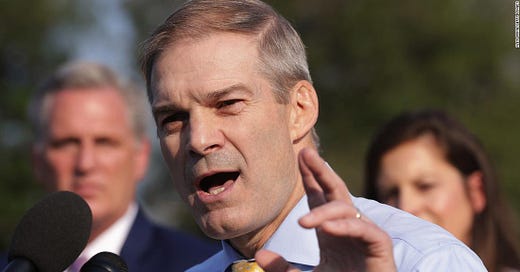
Since the night of the November 5, election, Trump and his allies have insisted that he won what Trump called “an unprecedented and powerful mandate.” But as the numbers have continued to come in, it’s clear that such a declaration is both an attempt to encourage donations— fundraising emails refer to Trump’s “LANDSLIDE VICTORY”—and an attempt to create the illusion of power to push his agenda.
The reality is that Trump’s margin over Democratic nominee Vice President Kamala Harris will likely end up around 1.5 points. According to James M. Lindsay, writing for the Council of Foreign Relations, it is the fifth smallest since 1900, which covers 32 presidential races. Exit polls showed that Trump’s favorability rating was just 48% and that more voters chose someone other than Trump. And, as Lindsay points out, Trump fell 4 million votes short of President Joe Biden in 2020.
Political science professor Lynn Vavreck of the University of California, Los Angeles, told Peter Baker of the New York Times: “If the definition of landslide is you win both the popular vote and Electoral College vote, that’s a new definition” On the other hand, she added, “Nobody gains any kind of influence by going out and saying, ‘I barely won, and now I want to do these big things.’”
Trump’s allies are indeed setting out to do big things, and they are big things that are unpopular.
Trump ran away from Project 2025 during the campaign because it was so unpopular. He denied he knew anything about it, calling it “ridiculous and abysmal,” and on September 16 the leader of Trump’s transition team, Howard Lutnick, said there were “Absolutely zero. No connection. Zero” ties between the team and Project 2025. Now, though, Trump has done an about-face and has said he will nominate at least five people associated with Project 2025 to his administration.
Those nominees include Russell Vought, one of the project's key authors, who calls for dramatically increasing the powers of the president; Tom Homan, who as acting director of Immigration and Customs Enforcement (ICE) oversaw the separation of children from their parents; John Ratcliffe, whom the Senate refused in 2019 to confirm as Director of National Intelligence because he had no experience in intelligence; Brendan Carr, whom Trump wants to put at the head of the Federal Communications Commission and who is already trying to silence critics by warning he will punish broadcasters who Trump feels have been unfair to him; and Stephen Miller, the fervently anti-immigrant ideologue.
Project 2025 calls for the creation of an extraordinarily strong president who will gut the civil service and replace its nonpartisan officials with those who are loyal to the president. It calls for filling the military and the Department of Justice with those loyal to the president. And then, the project plans that with his new power, the president will impose Christian nationalism on the United States of America, ending immigration, and curtailing rights for LGBTQ+ individuals as well as women and racial and ethnic minorities.
Project 2025 was unpopular when people learned about it.
And then there is the threat of dramatic cuts to the U.S. government, suggested by the so-called “Department of Government Efficiency,” or DOGE, headed by billionaires Elon Musk and Vivek Ramaswamy. They are calling for cuts of $2 trillion to the items in the national budget that provide a safety net for ordinary Americans at the same time that Trump is promising additional tax cuts for the wealthy and corporations. Musk, meanwhile, is posturing as if he is the actual president, threatening on Saturday, for example: “Those who break the law will be arrested and that includes mayors.”
On Meet the Press today, current representative and senator-elect Adam Schiff (D-CA) reacted to the “dictator talk,” with which Trump is threatening his political opponents, pointing out that "[t]he American people…voted on the basis of the economy—they wanted change to the economy—they weren’t voting for dictatorship. So I think he is going to misread his mandate if that’s what he thinks voters chose him for.”
That Trump and his team are trying desperately to portray a marginal victory as a landslide in order to put an extremist unpopular agenda into place suggests another dynamic at work.
For all Trump’s claims of power, he is a 78-year-old man who is declining mentally and who neither commands a majority of voters nor has shown signs of being able to transfer his voters to a leader in waiting.
Trump’s team deployed Vice President–elect J.D. Vance to the Senate to drum up votes for the confirmation of Florida representative Matt Gaetz to become the United States attorney general. But Vance has only been in the Senate since 2022 and is not noticeably popular. He—and therefore Trump—was unable to find the votes the wildly unqualified Gaetz needed for confirmation, forcing him to withdraw his name from consideration.
The next day, Gaetz began to advertise on Cameo, an app that allows patrons to commission a personalized video for fans, asking a minimum of $550.00 for a recording. Gaetz went from United States representative to Trump’s nominee for U.S. attorney general to making videos for Cameo in a little over a week.
It is a truism in studying politics that it’s far more important to follow power than it is to follow people. Right now, there is a lot of power sloshing around in Washington, D.C.
Trump is trying to convince the country that he has scooped up all that power. But in fact, he has won reelection by less than 50% of the vote, and his vice president is not popular. The policies Trump is embracing are so unpopular that he himself ran away from them when he was campaigning. And now he has proposed filling his administration with a number of highly unqualified figures who, knowing the only reason they have been elevated is that they are loyal to Trump, will go along with his worst instincts. With that baggage, it is not clear he will be able to cement enough power to bring his plans to life.
If power remains loose, it could get scooped up by cabinet officials, as it was during a similarly chaotic period in the 1920s. In that era, voters elected to the presidency former newspaperman and Republican backbencher Warren G. Harding of Ohio, who promised to return the country to “normalcy” after eight years of the presidency of Democrat Woodrow Wilson and the nation’s engagement in World War I. That election really was a landslide, with Harding and his running mate, Calvin Coolidge, winning more than 60% of the popular vote in 1920.
But Harding was badly out of his depth in the presidency and spent his time with cronies playing bridge and drinking upstairs at the White House—despite Prohibition—while corrupt members of his administration grabbed all they could.
With such a void in the executive branch, power could have flowed to Congress. But after twenty years of opposing first Theodore Roosevelt, and then William Howard Taft, and then Woodrow Wilson, Congress had become adept at opposing presidents but had split into factions that made it unable to transition to using power, rather than opposing its use.
And so power in that era flowed to members of Harding’s Cabinet, primarily to Treasury Secretary Andrew Mellon and Secretary of Commerce Herbert Hoover, who put into place a fervently pro-business government that continued after Harding’s untimely death into the presidency of Calvin Coolidge, who made little effort to recover the power Harding had abandoned. After Hoover became president and their system fell to ruin in the Great Depression, Franklin Delano Roosevelt took their lost power and used it to create a new type of government.
In this moment, Trump’s people are working hard to convince Americans that they have gathered up all the power in Washington, D.C., but that power is actually still sloshing around. Trump is trying to force through the Senate a number of unqualified and dangerous nominees for high-level positions, threatening Republican senators that if they don’t bow to him, Elon Musk will fund primary challengers, or suggesting he will push them into recess so he can appoint his nominees without their constitutionally-mandated advice and consent.
But Trump and his people do not, in fact, have a mandate. Trump is old and weak, and power is up for grabs. It is possible that MAGA Republicans will, in the end, force Republican senators into their camp, permitting Trump and his cronies to do whatever they wish.
It is also possible that Republican senators will themselves take back for Congress the power that has lately concentrated in presidents, check the most dangerous and unpopular of Trump’s plans, and begin the process of restoring the balance of the three branches of government.
—
Notes:
https://www.cfr.org/blog/transition-2025-did-trump-win-unprecedented-and-powerful-mandate
https://www.nytimes.com/2024/11/22/us/politics/trump-election-landslide.html
https://www.politifact.com/article/2024/nov/14/in-context-tom-homans-comments-that-fam/
https://www.nbcnews.com/politics/politics-news/matt-gaetz-on-cameo-platform-rcna181565
https://www.thedailybeast.com/vances-failed-first-test-fuels-doubts-about-white-house-power/
https://www.theguardian.com/us-news/2024/nov/21/matt-gaetz-withdraws-ag-nomination
https://www.washingtonpost.com/politics/2024/11/20/trump-project-2025-second-administration/
X:
elonmusk/status/1860425033450975678
Bluesky:










The Hobbit: An Unexpected Journey”—that speaks forcefully to how I am feeling as we enter this holiday week: “Some believe it is only great power that can hold evil in check, but that is not what I have found. It is the small everyday deeds of ordinary folk that keep the darkness at bay. Small acts of kindness and love.” From Joyce Vance Substack
I love the ‘sloshing’ metaphor. The stakes seem so high but it is a relief to know there are possible outcomes that do not require the country …and the world on its tail…to slam into a ‘29 level crash and/or a 30’s type recession.